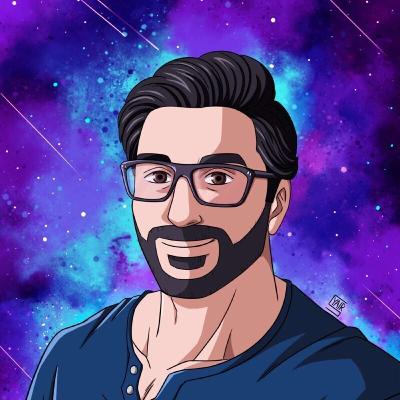Discover SourceLife
SourceLife

SourceLife
Author: Novu
Subscribed: 0Played: 0Subscribe
Share
© Novu 2022
Description
Open-source has existed since the 90s, created by passionate tech developers.
In the last few years, open-source has taken a new angle, and developers changed into companies.
Today you can find many open-source companies walking the path of developer-first and building high-growth, high-performance businesses, many backed by prominent VCs. We can expect even more significant growth over the next years.
A new and exciting market was created, and many new metrics and strategies came with a recent call.
Join us as we unravel top founders’ decisions to build their companies and the mistakes and successes they have achieved while building their COSS companies.
In the last few years, open-source has taken a new angle, and developers changed into companies.
Today you can find many open-source companies walking the path of developer-first and building high-growth, high-performance businesses, many backed by prominent VCs. We can expect even more significant growth over the next years.
A new and exciting market was created, and many new metrics and strategies came with a recent call.
Join us as we unravel top founders’ decisions to build their companies and the mistakes and successes they have achieved while building their COSS companies.
13 Episodes
Reverse
Being a single founder is hard. Being a single open-source founder for a bootstrap company sounds almost impossible.
Joel shares his journey with Browserless, starting as a side job and slowly becoming his startup.
We discussed his difficulties making mistakes when he started and his thoughts about raising funds.
We had the pleasure of talking to Aneel Lakhani, VC & Crane.
Aneel has a long history of marketing, specifically with open-source.
We talked about different strategies, why it's so hard to market open-source, and why open-source has no attribution.
Stay tuned!
We had the pleasure of talking to Or Weis, CEO & Co-Founder of Permit.io.
We talked about the different approaches to open-source. Should you put all your code out there or make a part of it closed?
Or gave some amazing examples from Docker and Elastic search, stay tuned!
We had the pleasure of hosting Baruch Sadogursky, DevOps Advocate @ JFrog.
We discussed the meaning of choosing your cloud computing service, the importance of writing tests, and new shiny toys such as Vercel and Netlify.
We talked with Nimrod about daily.dev, how to advertise to developers, how companies use the platform for growth, community, and how a movement is created, and we can't control it.
TLDR; We talked about Amplication enterprise approach, how to serve both developers and enterprises, the importance of pricing, when a COSS company should start monetizing, and much more!
We had a fantastic time with Ran Ribenzaft @ CTO and Co-Founder of Epsagon (Acquired by Cisco), about how to talk to developers.We discussed the right message, marketing, how to go from checking the product to needing it, inconsistent messaging, and so many other valuable things!
We had a pleasure talking about Alex Barashkov @ CEO of PixelPoint.io.We talked about the difference between an open-source design to any other website, his thoughts about open-source website design,How do find designers that can fit an open-source company, what can of design is trending right now for open-source, and how did some companies get acquired after changing their design 🤯
Today's podcast discussed building an open-source company compared to B2B SaaS.The Importance of open source companies to have a monetization strategy in place.The benefits of using open-source products.The conversation revolved around the fact that while open source products are often free to use,companies still need to consider how it will generate revenue from its creation.We also discussed RunaCapital and Igor open source library awesome-oss-alternatives which you can find here:https://github.com/RunaCapital/awesome-oss-alternatives
In this episode, we talk about how we grew Novu as a community and what actions we had to take.
In this episode, we talk about how to grow your community through open communication and collaboration. We discuss the importance of creating a solution that solves problems for junior and senior engineers and the benefits of including your community in the software development process. Finally, we share tips on recognizing contributor efforts publicly and instilling open communication policies within your community.
Remote working has been in existence for a long time, but it wasn’t as prominent then as it is now. Then, You just had to show up to the office, even if all that needed to be done at the office was as simple as signing a document or as tasking as having a team meeting, you just had to be physically present at the office. This was the reality for many people until the epidemic came and suddenly, so many people had a different orientation about ‘Working from home’ and that going to the office wasn’t necessary to work together and collaborate.
Every company in today's world needs to decide what metrics they will share with everybody internally and publicly.In today's world, more companies are exposing their numbers such as income/amount of users, salaries, and in general, trying to be as transparent as possible with their customers/consumers.We had a fascinating call with Tomer, the founder of Novu, on the steps he had to take to make to be more transparent.We talked about metrics, handbooks, and our contributors.















